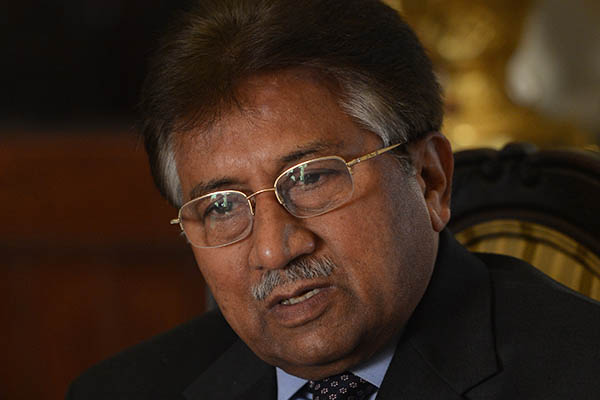
Farooq Naeem—AFP
The Pakistan Army appears to have a significant problem with ‘rogue elements’
Former president and Army chief General Pervez Musharraf, on the run from an anti-terrorism court in Pakistan, says he didn’t kill Benazir Bhutto but “rogue elements within the Army” might have. He asserted: “I don’t have any facts available. But my assessment is very accurate. I think a lady who is known to be inclined toward the West is seen suspiciously by those elements.”
But he was seen by these very same elements within the Army as doing worse than that: getting cozy with India. Air Force officer Adnan Rashid tried to kill him for it but was caught and imprisoned at Rawalpindi’s Adiala jail. But other rogues in the Army got him transferred to the faraway border town of Bannu, where he was “sprung” by an Al Qaeda led by yet another “rogue” Ilyas Kashmiri. Under Kashmiri’s leadership, Rashid helmed the breakout at yet another jail in Dera Ismail Khan and freed even more terrorists before finally being taken down by an American drone. In a camp in Mansehra, near Abbottabad, where Osama bin Laden was allegedly living with the help of more Army “rogues,” many “regulars” were trained as terrorists.
The biggest rogue, of course, was ex-ISI chief General Hamid Gul who “connected” with the Haqqani Network and had his son trained by them. Well-informed anchor Hamid Mir, writing in The News on Sept. 20, 2009, noted: “Very few people know that Ilyas Kashmiri—from Kotli area of Azad Kashmir—was a former Special Service Group (SSG) commando of the Pakistan Army… he became a legend after escaping from an Indian jail… he was given the task to attack the Indians from their back.”
Hamid Mir’s car was booby-trapped in 2012 by even more “rogues” but rightwing Jamiat Ulema-e-Islam leader Maulana Samiul Haq didn’t agree that the Taliban had done it. He rang Mir to tell him that “there was no Ehsanullah Ehsan.” A mere five years later, Ehsan defected to Pakistan and confessed to his crimes.
